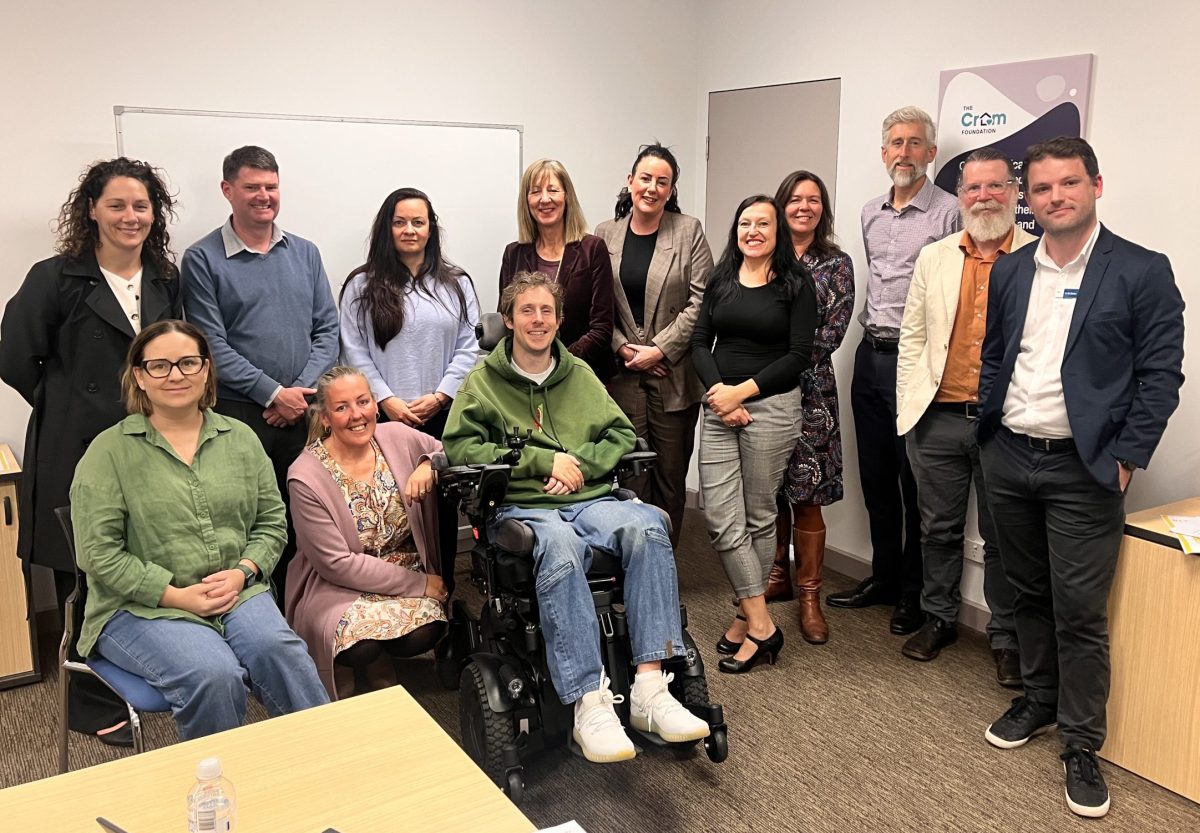
Illawarra Disability Alliance representatives with advocate Kyle Montgomery (centre) and Wollongong City Councillor Kit Docker (far right). Photo: Supplied.
Disability advocates fear that changes to the NDIS that came into effect this month could see providers stop offering essential therapies.
From 1 July, therapists are only allowed to charge half of the therapy hourly rate for travel to home or school sessions, which could significantly reduce the income from and appeal of offering these services.
“Physiotherapists could be travelling 45 minutes each way, an hour and a half out of their day,” Community Industry Group Senior Policy Specialist Edward Birt said. “They could be earning $300 for that hour and a half delivering services; instead they’re expected to bill $93.
“So what are they going to do? They’re going to stop visiting people.”
Noah’s Inclusion Services CEO Alice Lans said removing the access to these therapies where they were most needed would have a detrimental impact on outcomes and quality of life.
“Therapy services are most effectively delivered in the person’s home or in other community settings,” Alice said.
“These changes undermine fundamental NDIS principles of person-centred supports and choice and control.”
Edward emphasised that these in-home services were vital for welfare and not a luxury.
“These therapists are keeping people safe, whether it’s nutrition and swallowing safety, or behavioural safety, or mobility safety, these are all frontline safety aspects to care,” he said.
“These are not frivolous supports for someone to get a massage or something like that. These are essential services.”
CareSouth CEO Renee Knight said the impact of these changes could go beyond the individual participants and priorities, and ripple throughout the community.
“When people with disability can’t access appropriate preventative therapy, the burden shifts to our schools, hospitals, and emergency services,” Renee said.
“Teachers will struggle with increased classroom disruptions, emergency departments will see more behavioural crises, and police will respond to situations that could have been prevented with the proper support.”
Renee said the change would make the system unfair.
“The NDIS was designed to give people with disability choice and control to live ordinary lives,” Renee said.
“These transport changes will create a two-tiered system where access to appropriate services depends on geography and financial resources rather than need.”
The restructure was released mid last month, giving businesses just a matter of weeks to implement changes and absorb costs.
“The government took over a year to complete and publish the review, but businesses are being given just two weeks to adjust. That’s simply unacceptable,” Business Illawarra Director Coralie McCarthy said.
“There aren’t multiple providers in these communities. Travel isn’t optional — it’s the only way services are delivered. The lack of consultation and the rushed implementation show a clear disconnect from the reality of regional service delivery.”
The Illawarra Disability Alliance is advocating for better consultation with those offering the services to provide the best pathways for participants to access fair and quality treatment.
“The [National Disability Insurance] Agency has not consulted appropriately with the therapeutic providers and all we’re hearing is that some people are ripping off the market, but that is not a basis to bring everything to a standstill,” Edward said.
“They could easily implement a different arrangement where people are billing on the actual travel times that they’re taking to get to and from – anyone can see on Google Maps where someone is and where they are travelling from.
“Instead we have been hit with this approach which has seen providers exit the market or move to unregistered service delivery models.”
For more information about the Illawarra Disability Alliance and its advocacy visit the IDA website.


















